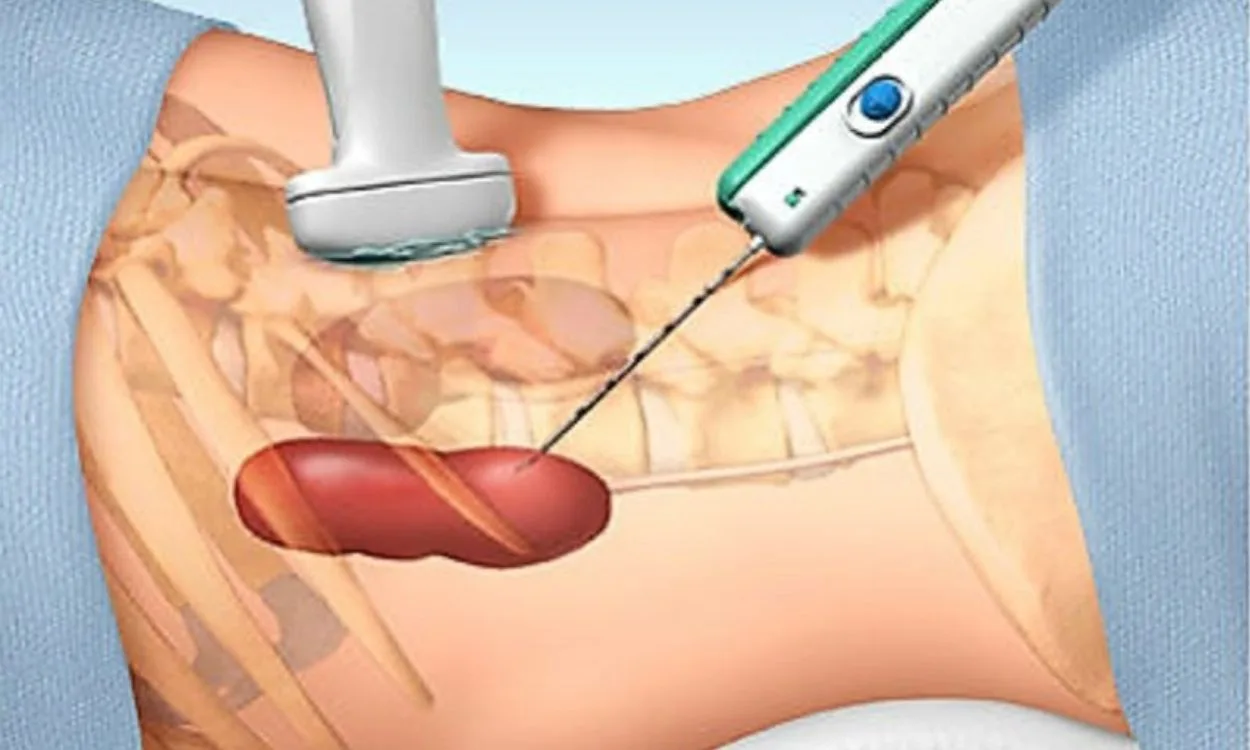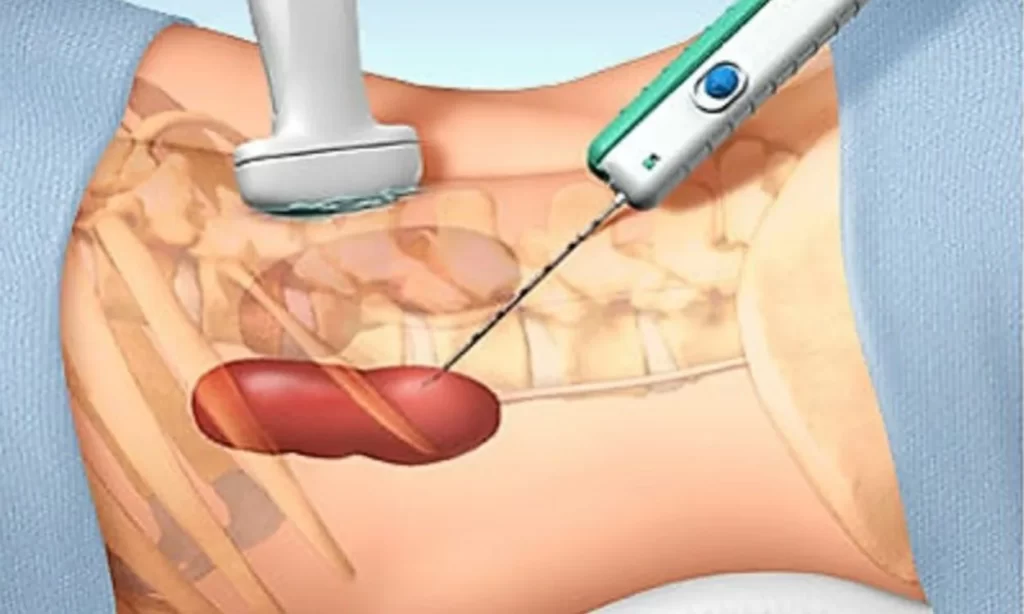
What is Kidney Biopsy – Indications/ pros and cons 2024
What is the risk involved?
Kidney biopsy, a medical procedure involving the removal of a small sample of kidney tissue for analysis, is a valuable tool in the diagnosis and management of various kidney diseases. This essay explores the indications for kidney biopsy, its potential benefits, and associated risks.
Indications for Kidney Biopsy:
- Diagnosis of Glomerular Diseases: Kidney biopsy is crucial in determining the underlying cause of glomerular diseases such as IgA nephropathy, lupus nephritis, and membranous nephropathy.
- Assessment of Proteinuria and Hematuria: It helps in evaluating the severity and underlying pathology of persistent proteinuria and hematuria.
- Monitoring Disease Progression: Biopsy aids in assessing disease progression and response to treatment, guiding therapeutic decisions in conditions like chronic kidney disease.
- Evaluation of Kidney Transplant Rejection: In kidney transplant recipients, biopsy assists in diagnosing acute and chronic rejection, graft dysfunction, and other complications.
Pros of Kidney Biopsy:
- Accurate Diagnosis: It provides a definitive diagnosis by examining kidney tissue under a microscope, enabling precise treatment planning.
- Personalized Treatment: Biopsy results allow clinicians to tailor treatment strategies based on the specific underlying pathology.
- Prognostic Information: Biopsy findings offer prognostic insights, helping predict disease progression and outcomes.
- Research and Clinical Trials: Biopsy specimens contribute to research efforts, facilitating the development of novel therapies and understanding of kidney diseases.

Cons of Kidney Biopsy:
- Risk of Complications: Although rare, complications such as bleeding, infection, and damage to surrounding structures may occur.
- Discomfort and Pain: Patients may experience discomfort or pain at the biopsy site during or after the procedure.
- Hospitalization: Some patients require observation and monitoring in a hospital setting post-biopsy to manage potential complications.
- Sampling Variability: The small tissue sample obtained may not always represent the entire kidney pathology, leading to sampling variability.
Types of Kidney Biopsy
- Percutaneous (needle) biopsy: The most common type, where a needle is inserted through the skin to collect the tissue sample. It’s usually done under ultrasound or CT scan guidance to ensure precision.
- Open biopsy: Performed less frequently, this involves making a small incision in the back to access the kidney directly. This is usually reserved for situations where needle biopsy is not possible.
How to Prepare for a Kidney Biopsy
Before the procedure, you’ll meet with your healthcare provider to discuss your medical history and any medications you’re taking. Common steps to prepare include:
- Medication review: You may need to stop taking blood thinners or certain medications that affect bleeding.
- Blood tests: These will be done to assess your blood’s clotting ability and kidney function.
- Fasting: You may be asked not to eat or drink for several hours before the procedure.
Post-Biopsy Care and Recovery
After the biopsy, you’ll be monitored for a few hours to ensure there are no immediate complications, such as bleeding. Common post-biopsy care instructions include:
- Rest: You may be asked to lie flat for a few hours to reduce the risk of bleeding.
- Pain management: Mild discomfort or soreness at the biopsy site is normal, and pain relievers may be recommended.
- Avoid heavy lifting: Refrain from strenuous activity for at least 1-2 weeks.
- Watch for complications: Report any unusual symptoms, such as excessive pain, fever, or blood in your urine.
Risks and Complications
As with any medical procedure, a kidney biopsy comes with risks, though serious complications are rare. Potential risks include:
- Bleeding: The most common complication, which may cause blood in the urine (hematuria) for a few days after the procedure. In rare cases, severe bleeding may require treatment.
- Infection: Though rare, there is a slight risk of infection at the biopsy site.
- Pain: Some people experience back pain or discomfort following the procedure.
- Damage to nearby organs: This is extremely uncommon but can occur if the needle inadvertently affects nearby organs, like the liver or spleen.
Read More : Understanding Kidney Function……..
https://www.drsuhasmondhe.com/understanding-kidney-function-and-its-importance/
Conclusion: Kidney biopsy plays a crucial role in the diagnosis and management of various kidney diseases, providing valuable insights into underlying pathology and guiding treatment decisions. While it offers numerous benefits such as accurate diagnosis and personalized treatment, clinicians must weigh these advantages against potential risks and limitations. With careful patient selection and appropriate procedural techniques, kidney biopsy remains an indispensable tool in nephrology, contributing to improved patient care and outcomes.


Leave a Reply